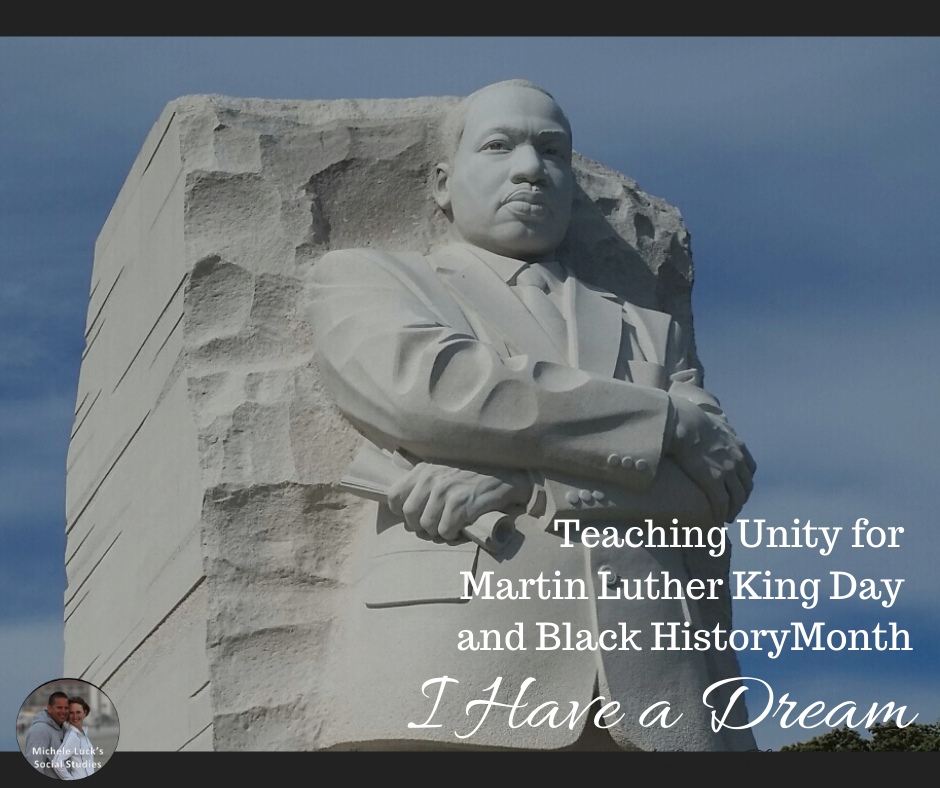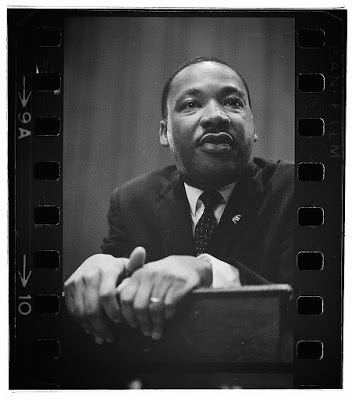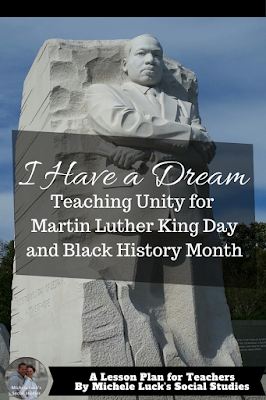Over five decades ago, the inspiring Martin Luther King, Jr., summed up our purpose as teachers.
“The function of education is to teach one to think intensively and to think critically. Intelligence plus character – that is the goal of true education.”

While the politics of our public school system may challenge this sentiment daily, we as teachers know the true motivation beyond our dedication. We hope to leave each student better than before they crossed the threshold of our classroom. Our goal is to foster intelligence plus character in our young students.
Each year as our country celebrates Martin Luther King Day in January and then continues the conversation with Black History Month in February, we often wish to incorporate the history behind the celebrations into our lesson plans. Though I encourage you to include this in your lessons every day (as well as teaching about other cultures and contributors to history), I think this time can be very instrumental in driving the conversation in our classrooms toward a message of love and unity.
While working to advance civil rights in the late 1950s and 1960s, Martin Luther King Jr. spoke out about using a nonviolent approach and civil disobedience to disrupt the system that was failing people of color. Surrounded by hatred and violence, MLK chose a message of love instead.
“Darkness cannot drive out darkness; only light can do that. Hate cannot drive out hate; only love can do that.”
As modern day teachers, we often get bogged down by the sheer volume of curriculum that should be covered in the course of a school year. Drowning in lesson plans, we may stray from the idea that our lessons should be laced with more than content; we should be teaching love, unity, and compassion to tomorrow’s leaders.

In fact, even the name of the discipline, Social Studies, lends to teaching beyond the history book. Social Studies teachers have an obligation to teach the interactions and characteristics of the human race. By glossing over this important holiday (and upcoming Black History Month) by sticking to the history, we may be doing a great disservice to our classrooms of tiny humans.
You can empower your students by helping them to find commonalities and similarities by providing a united classroom community and a safe space to embrace differences.
“We may have all come on different ships, but we’re in the same boat now.”
There are so many great lesson plans and activities to incorporate in your lesson planning for January and February, and beyond. Try some of the following activities to celebrate Martin Luther King Day or the upcoming Black History Month.
Martin Luther King Walking Tour
Try this non-traditional activity to get students moving and thinking. Engage students in a real-life scavenger hunt to collect clues about Martin Luther King, Jr., his life, and his contributions.
Digital 1:1 Martin Luther King Activity
Looking for something more 1:1? This activity allows students to work independently to uncover important facts about Martin Luther King, Jr. and his work.
Quick Quotes Activity
This one-day activity explores Martin Luther King, Jr.’s own spoken words, analyzing his different political causes with quotes on varying topics.
“I Have a Dream” Speech Primary Source Analysis
Want to explore MLK from a literary perspective? This primary source analysis breaks down Martin Luther King, Jr.’s “I Have a Dream” speech.
Significant Contributions of African Americans
Continue your teaching into Black History Month with this centers activity, meant to discuss significant contributions of African Americans.
FREE! Significant African Americans Quote Analysis
Dive deeper into the contributions of significant African Americans by analyzing quotes in this free activity!
No matter which activities you choose to incorporate in your upcoming lessons, remember the important reason for teaching these sensitive lessons. Remind yourself, as well as your students, that even the smallest step toward progress is indeed progress.
“If I cannot do great things, I can do small things in a great way.”

By teaching these difficult lessons to the impressionable young minds in your classroom, you may make a bigger impact than is conceivable. Continue to build a strong classroom community of open-minded, compassionate humans, and you will be successful in teaching.
Happy Teaching!
